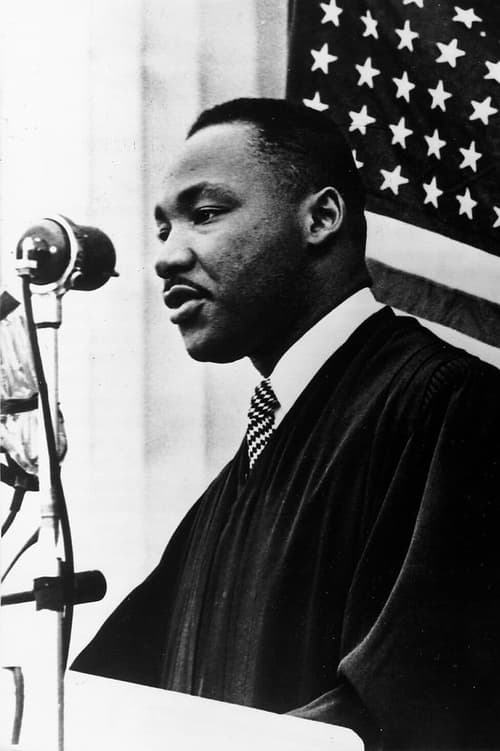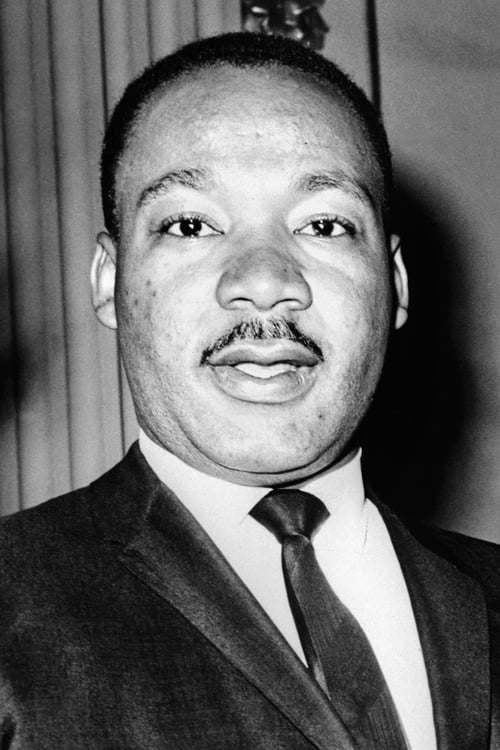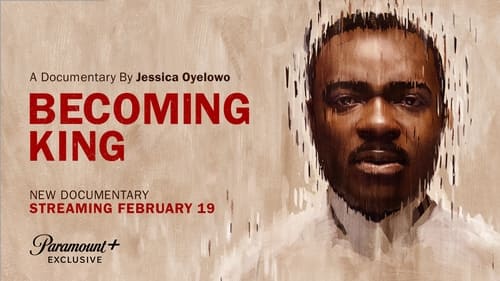
Self (archive footage)
A look at British actor David Oyelowo's journey to playing Civil Rights activist Dr. Martin Luther King Jr. in Ava DuVernay's acclaimed 2014 biopic Selma, based on the 1965 Selma to Montgomery voting rights marches.

"Betye Saar: Drifting Toward Twilight" covers renowned American artist Betye Saar’s large-scale work “Drifting Toward Twilight”—recently commissioned by The Huntington— a site-specific installation that features a 17-foot-long vintage wooden canoe and found objects, including birdcages, antlers, and natural materials harvested by Saar from The Huntington’s grounds. This film captures the artist's process in preparation for her upcoming exhibition, while also homaging Betye's life and work throughout her career. We are producing this project in collaboration with Betye's studio, Roberts Project, and Sola Saar Augusston, granddaughter of Betye and co-curator of the exhibit for the Huntington Museum. It will be exhibited in an annex next to the artist's piece within the Huntington's Virginia Steele Scott Galleries of American Art.
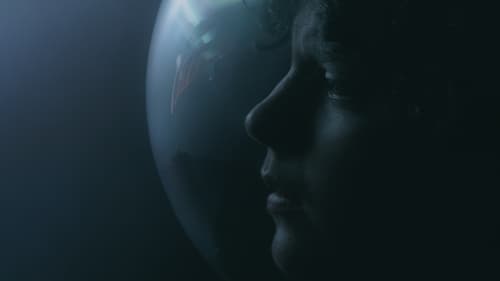
Self (Archive Footage)
In a last-ditch effort to save earth, a man sacrifices himself and is forced to relive a series of suppressed memories that become smeared by the detonation of a stellar bomb. This paranormal explosion of thoughts begin to blur the lines between reality and fiction; the only way out is forward.

Self (archive footage)
Entremeando anedotas pessoais, entrevistas e revelações chocantes, o advogado criminalista e especialista em direitos humanos Jeffery Robinson delineia a brutal linha de tempo do racismo contra negros nos Estados Unidos, desde os tempos da escravidão até o mito moderno de um país pós-racial.

Self (archive footage)
Em 1969, no mesmo verão em que ocorreu Woodstock, outro festival musical foi organizado no Harlem, em Nova York, para celebrar a música norte-americana e a história afro-americana. As imagens do concerto Harlem Cultural Festival, filmadas há 50 anos e inéditas até hoje, capturam um empolgante momento cultural nos Estados Unidos, embora subestimado historicamente. Entrevistas com artistas que participaram do evento são intercaladas com as apresentações de, entre outros, Stevie Wonder, Mahalia Jackson e Mavis Staples, Sly & the Family Stone e Nina Simone.

Himself
No person has transformed a race’s social standing as Martin Luther King Jr. He transcended racial barriers, But the quest for equality came with consequences. 1968. April 4th. A day that changed the landscape of society forever.
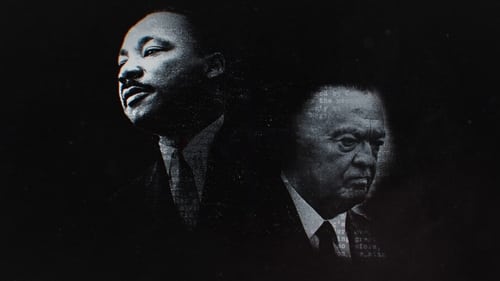
Self (archival footage)
Based on newly declassified files, the film explores the US government’s surveillance and harassment of Martin Luther King, Jr.
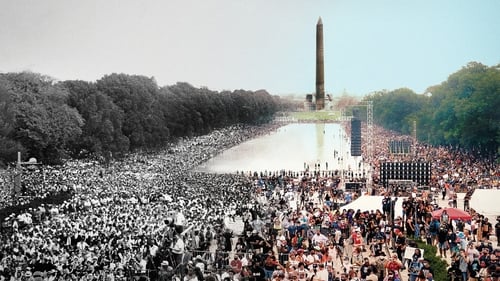
Self (archive footage)
Documentário que examina o passado dos Estados Unidos para oferecer uma visão de sua situação política e histórica atual.

Documentário sobre racismo estrutural, feito durante a pandemia.
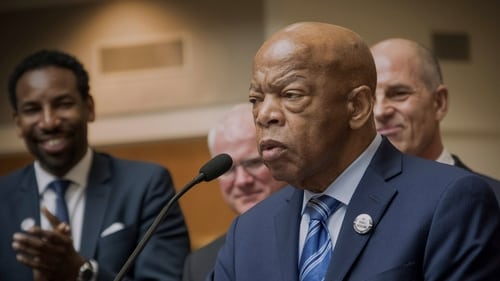
Self (Archival Footage)
The timely biopic focuses on John Lewis’ longstanding prominence as a civil rights champion and his continuing crusade for racial and social equality. The documentary illuminates the 80-year-old Congressman’s life as it chronicles the moments on the extraordinary journey that have shaped his place in history and make him such a galvanizing figure today as protests circle the globe. Lewis’ schedule has increased ten-fold as he has become the go-to figure for TV news shows, podcasts and newspapers and magazines from the Washington Post to Vanity Fair, commenting on and leading the way forward through today’s worldwide protests and demonstrations.

Self (archive footage)
The timely biopic focuses on John Lewis’ longstanding prominence as a civil rights champion and his continuing crusade for racial and social equality. The documentary illuminates the 80-year-old Congressman’s life as it chronicles the moments on the extraordinary journey that have shaped his place in history and make him such a galvanizing figure today as protests circle the globe. Lewis’ schedule has increased ten-fold as he has become the go-to figure for TV news shows, podcasts and newspapers and magazines from the Washington Post to Vanity Fair, commenting on and leading the way forward through today’s worldwide protests and demonstrations.
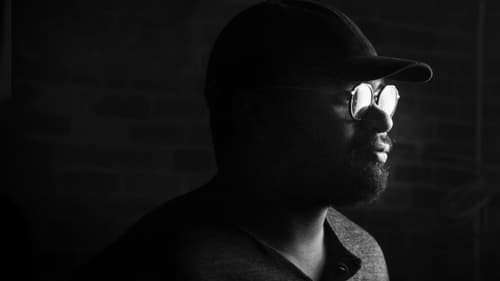
Self (archive footage)
In a collection of intimate interviews with some of America's most provocative black conservative thinkers, Uncle Tom takes a unique look at being black in America. Featuring media personalities, ministers, civil rights activists, veterans, and a self-employed plumber, the film explores their personal journeys of navigating the world as one of America's most misunderstood political and cultural groups: The American Black Conservative. In this eye-opening film from Director Justin Malone and Executive Producer Larry Elder, Uncle Tom examines self-empowerment, individualism and rejecting the victim narrative. Uncle Tom shows us a different perspective of American History from this often ignored and ridiculed group.

Self (archive footage) (uncredited)
Spike Lee conta a história de quatro veteranos de guerra afro-americanos que voltam ao Vietnã à procura dos restos mortais de seu comandante e de um tesouro enterrado.

Self (archive footage)
John F Kennedy was one of America's greatest presidents. He was the voice of the people who was a natural public speaker and a cool calm figure in front of the cameras. His influence helped push America through the most dangerous moments of the cold war, diffusing what could have been world nuclear destruction. But in November 1963, his life would come to a devastating end through the hands of an assassin. But who would kill one of the most popular presidents? Why was he a target? Join us as we investigate the life and career of JFK and ask the question...Who was really behind the killing of JFK?

Self (archive footage)
For one week in February 1968, Johnny Carson gave up his chair to Harry Belafonte, the first time an African-American had hosted a late night TV show for a whole week.

"England 79" - 17 scenes from Great Britain the winter of discontent, 1979.

Self (archive footage)
Por mais de meio século, o temido jornalista do 60 Minutes, Mike Wallace, enfrentou as figuras mais influentes do mundo. Apoiando-se exclusivamente em filmagens de arquivo, o filme interroga o interrogador, acompanhando a célebre carreira de Mike e a vida pessoal conturbada enquanto descompacta como o jornalismo de radiodifusão evoluiu para o precário ponto de inflexão de hoje.
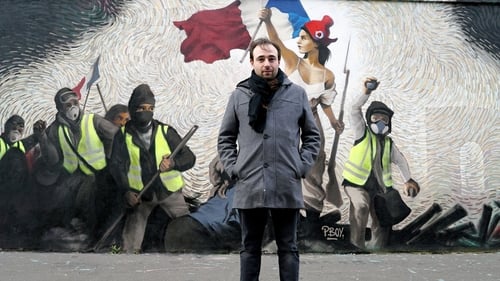
Self - Civil Rights Activist (archive footage)
Thoughts of a diversity of public and private citizens on the virtues of democracy, its faults, its decadence, its fall and the rise of populism.

Himself (archive footage)
He counseled presidents and popes, served on corporate boards and infuriated Richard Nixon. He was one of the only friends to whom Ann Landers turned for advice. During his 35 years as president of the University of Notre Dame, Theodore Hesburgh became one of the most influential and inspiring people of the 20th century.
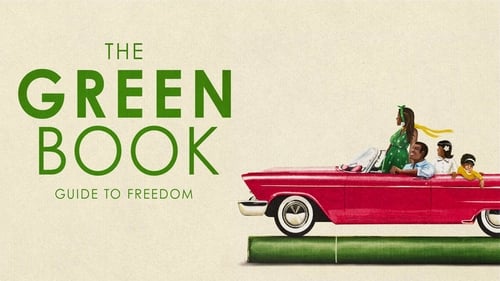
Self - Civil Rights Activist (archive footage)
In 1936, Victor H. Green (1892-1960) published The Negro Motorist Green Book, a book that was both a travel guide and a survival manual, to help African-Americans navigate safe those regions of the United States where segregation and Jim Crow laws were disgracefully applied.
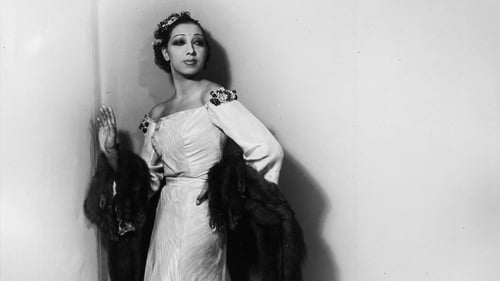
Self (archive footage)
How did a poor little black girl from Missouri become the Queen of Paris, before joining the French Resistance and finally creating her dream family “The Rainbow Tribe”, adopting twelve children from four corners of the world? This is the fabulous story of the first black superstar, Josephine Baker.

Self (archive footage) (uncredited)
A democracy should protect its most vulnerable citizens, but increasingly the United States is failing to do so. This investigation blends the insights of experts with the experiences of citizens of the Rust Belt in the Midwest where the steel industry once flourished, but where closures and outsourcing have left urban areas desolate. It is here where Donald Trump finds some of his most fervent supporters.

Self (archive footage)
"Rigged" shows viewers just what Republicans did – and continue to do – from creating new barriers to voter registration, to purging American citizens from the voting rolls without notice, to new and deliberate impediments to casting a vote. In addition, the film shows how GOP activists developed an elaborate but false narrative of widespread voter fraud in order to justify the necessity for new and draconian voting restrictions.
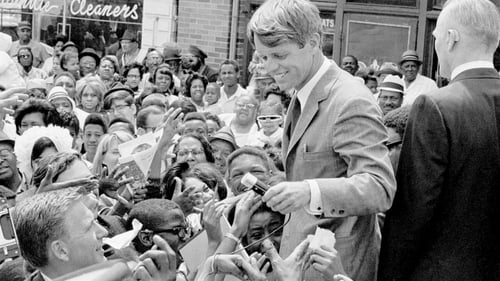
Self (archive footage)
The Tet Offensive during the Vietnam War, the Civil Rights Movement, the May events in France, the assassinations of Martin Luther King and Robert F. Kennedy, the Prague Spring, the Chicago riots, the Mexico Summer Olympics, the presidential election of Richard Nixon, the Apollo 8 space mission, the hippies and the Yippies, Bullitt and the living dead. Once upon a time the year 1968.
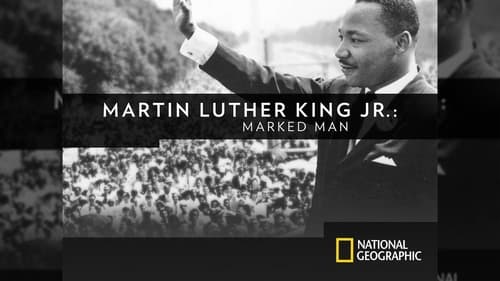
Archival Footage
Martin Luther King ajuda a impulsionar a mudança nos Estados Unidos em face da amarga oposição, especialmente de opositores do governo dos EUA. King está sujeito a uma feroz campanha de intimidação pelo FBI de J. Edgar Hoover.
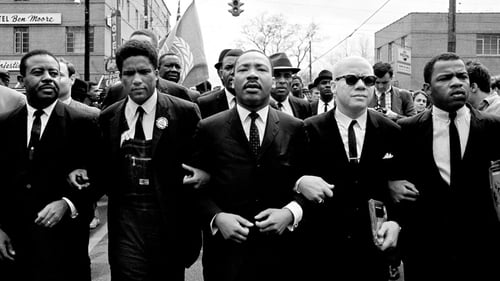
Himself
This feature documentary deeply explores Dr. King, his experience, his legacy and the Movement at large through key events – The Montgomery Bus Boycott, The Birmingham Campaign, March on Washington, the Selma Movement and Assassination and Legacy.

Self (archive footage)
On the anniversary of Martin Luther King's death, Sir Trevor McDonald travels to the Deep South of America to get closer to the man who meant so much to him.
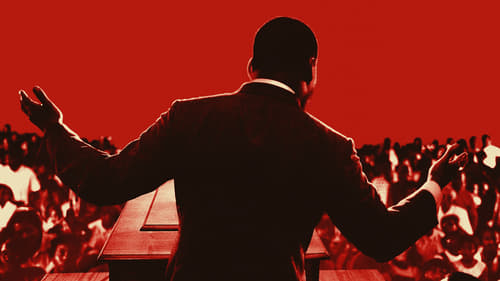
Self (archive footage)
Um olhar esclarecedor sobre os últimos anos de vida do Dr. Martin Luther King, Jr. O filme mostra o caráter inabalável de King, sua doutrina radical de não-violência e sua luta interna. O premiado Peter Kunhardt dirige e produz este documentário da HBO sobre esse ícone dos direitos civis, 50 anos após seu assassinato em Memphis..
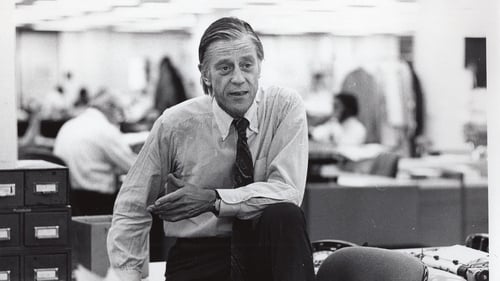
Self (archive footage)
A vida do lendário editor Ben Bradley, que nos anos 70 desafiou o governo dos EUA a desclassificar os documentos do
Pentágono.

Self (archive footage)
Documentário sobre eventos ocorridos em 28 de agosto na história afro-americana, exibido no Museu de História Afro-Americana Smithsonian.
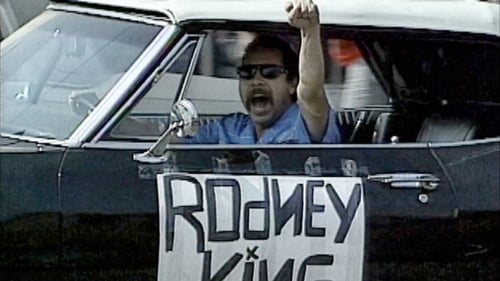
Himself (Archival Footage)
An in-depth and provocative look at the 1992 Los Angeles riots exploring the roots of civil unrest in California and the relationship between African Americans and LAPD.
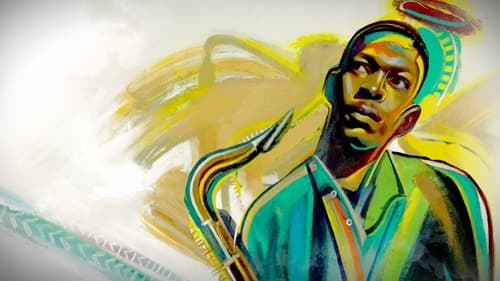
Self - Civil Rights Activist (archive footage)
An account of the life of the brilliant jazz musician John Coltrane (1926-67), a gifted saxophonist, an extraordinarily talented thinker whose original, avant-garde work has impacted and influenced people all over the world. A story about music's ability to entertain, inspire and transform.
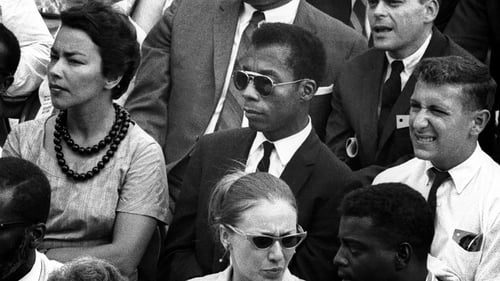
Self (archive footage)
Baseado no livro de James Baldwin, o filme compara as propostas dos líderes ativistas Medgar Evers, Malcolm X e Martin Luther King com questões raciais contemporâneas.

Self (archive footage)
Estudiosos, ativistas e políticos analisam a correlação entre a criminalização da população negra dos EUA e o boom do sistema carcerário do país.

Self (archive footage)
Historian Andrew Cohen discusses Robert Drew's 1963 documentary Crisis: Behind a Presidential Commitment.
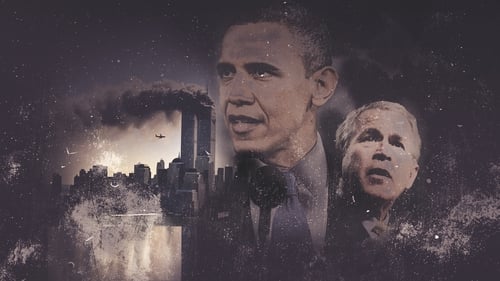
Self (archive footage)
A look at the War on Terror and the threat it's causing to our civil liberties and political discourse. Academy Award nominee James Cromwell presents Janek Ambros' directorial debut. The feature doc tackles the War on Terror's impact on civil liberties and the strange coalition it's creating between the progressive left and libertarian right. The doc examines the NSA, drones, the war on journalism and other encroachments on civil liberties started by the Bush era and expanded by the Democratic establishment.
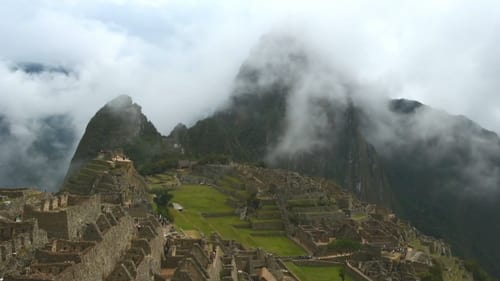
Self (archive footage)
O documentário é uma abordagem sobre a incapacidade da raça humana em se dar bem. Refletindo sobre os milhares de anos que se passaram e o aparecimento de inúmeras áreas, como ciência, literatura, tecnologia e religião, o filme problematixa a falta de calma da humanidade e a negativa habilidade de matar um ao outro, os animais e a natureza.
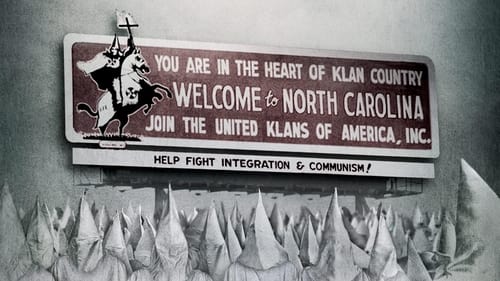
Self (archive footage)
Investigates the reasons North Carolina, long seen as the most progressive state in the South, became home to the largest Klan organization in the country, with more members than all the other Southern states combined, during the 1960s.
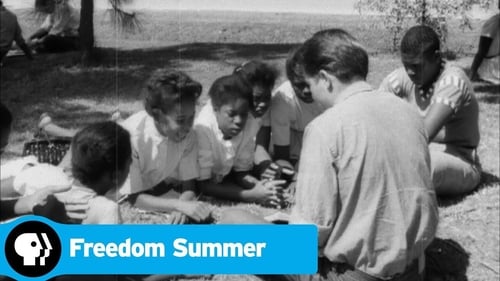
Self (archive footage)
In the summer of 1964, more than 700 students descended on violent, segregated Mississippi. Defying authorities, they registered voters, created freedom schools, and established the Mississippi Freedom Democratic Party. Fifty years later, eyewitness accounts and never-before-seen archival material tell their story. Not all of them would make it through.

Self (archive footage)
Speech-making is the art of persuasion. Well-honed rhetoric appeals not just to the mind, but to the heart and, deeper down, in the guts. Examining the speeches that provoked radical change, surprised pundits or shocked listeners, poet Simon Armitage dissects what makes a perfect speech. Simon gets the inside story behind some of the famous speeches of the modern age, talking to Tony Blair's speechwriter, to Earl Spencer on his controversial address at his sister's funeral and the woman who challenged the rioters in Hackney. We hear how Peter Tatchell confronted the BNP, Paul Boateng on how Enoch Powell's divisive speech personally affected him as a child, and Colonel Tim Collins, whose charge was to motivate his troops on the eve of the Iraq war. Simon discusses the nuts and bolts of speech writing with Vincent Franklin, aka the blue-sky thinking guru Stuart Pearson from The Thick of It, and gets tips on powerful delivery from actor Charles Dance.

Self
Documentary commemorating the 50th anniversary of Martin Luther King's March on Washington, a pivotal moment in the Civil Rights Movement in the United States. The film tells the story of how the march for jobs and freedom began, speaking to the people who organised and participated in it. Using rarely seen archive footage the film reveals the background stories surrounding the build up to the march as well as the fierce opposition it faced from the JFK administration, J Edgar Hoover's FBI and widespread claims that it would incite racial violence, chaos and disturbance. The film follows the unfolding drama as the march reaches its ultimate triumphs, gaining acceptance from the state, successfully raising funds and in the end, organised and executed peacefully.
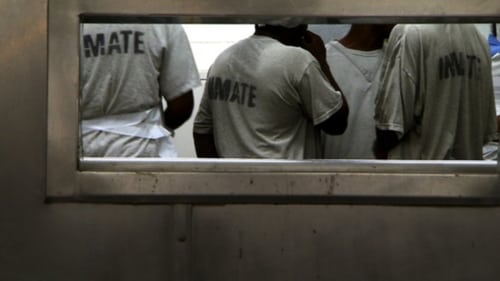
Self (archive footage) (uncredited)
In the past 40 years, the War on Drugs has accounted for 45 million arrests, made America the world's largest jailer, and destroyed impoverished communities at home and abroad. Yet drugs are cheaper, purer, and more available today than ever. Where did we go wrong?
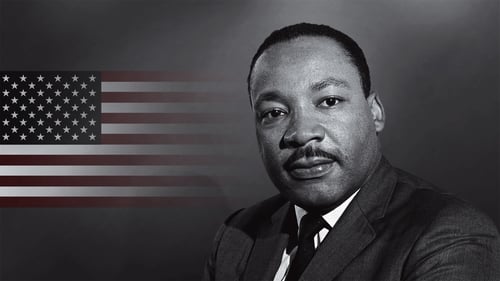
Self (archive footage)
Relive an unspeakable tragedy detailed with unforgettable images, videos, and recordings only recently rediscovered.

Self (archive footage)
Filmmaker Rory Kennedy interviews her mother, Ethel Kennedy, who discusses family, marriage and politics.
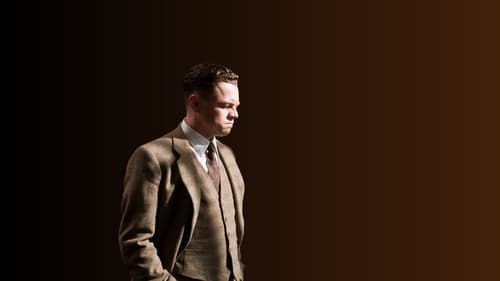
Self (archive footage) (uncredited)
Drama biográfico sobre a vida pública e privada de J. Edgar Hoover, o controverso diretor e principal nome à frente da mais famosa agência de inteligência do mundo, o FBI, que foi oficialmente fundada em 1935, tornando-se uma eficiente ferramenta de combate ao crime. J. Edgar Hoover ocupou o cargo durante a gestão de oito presidentes americanos e foi o diretor da agência até sua morte, em 1972, aos 77 anos de idade. Hoover foi ao mesmo tempo temido e admirado, odiado e reverenciado; ficou conhecido por causa de seus critérios sempre discutíveis para perseguir ativistas políticos, congressistas e líderes do movimento negro, e ainda impôs seus métodos ilegais para criar arquivos secretos de líderes adversários. Consta na biografia de Hoover, também, sua suposta homossexualidade.

Self (archive footage) (uncredited)
2012: Tempo de Mudança é um documentário que apresenta maneiras de transformar nossa sociedade insustentável em uma cultura planetária regenerativa. Isso pode ser alcançado por meio de uma mudança de consciência pessoal e global e da implementação sistêmica do design ecológico.
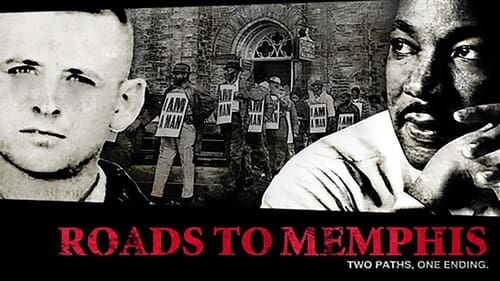
Self (archive footage)
The wildly disparate yet fatefully entwined stories of assassin James Earl Ray and his target, Dr. Martin Luther King Jr.
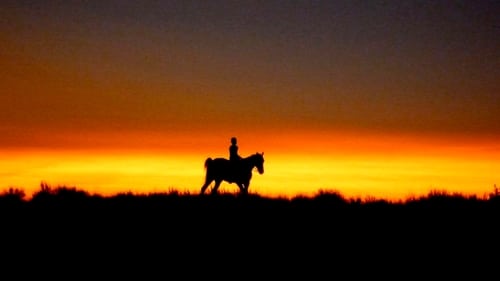
Himself (archive footage)
The evolution of the depiction of Native Americans in film, from the silent era until today, featuring clips from hundreds of movies and candid interviews with famous directors, writers and actors, Native and non-Native: how their image on the screen transforms the way to understand their history and culture.
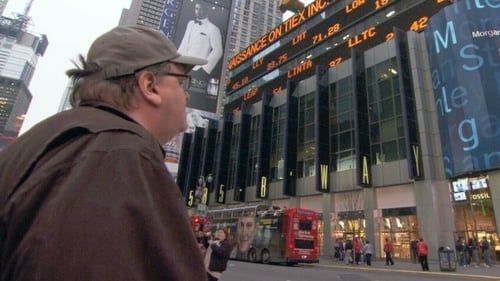
Self (archive footage)
Na sequência do colapso da economia mundial, em 2008, a classe média americana enfrenta atualmente a maior taxa de desemprego dos últimos 26 anos, tendo atingido os dois dígitos (Out/2009). Decidido a encontrar respostas que todos anseiam, Michael Moore entra em ação pedindo explicações ao poder político e às instituições financeiras. Apontando o dedo ao capitalismo, no seu estilo tão característico.

Self (archive footage)
Broadcast journalist Tavis Smiley hits the road in 2008 with friends Cornel West, BeBe Winans and other prominent African Americans to explore the contemporary experiences of black men and to ask them: "What do you stand for?" Set against Barack Obama's rise to presidential power, Smiley and his fellow travelers offer diverse perspectives on African Americans' soul music, historic struggle for equality, current race relations and more.
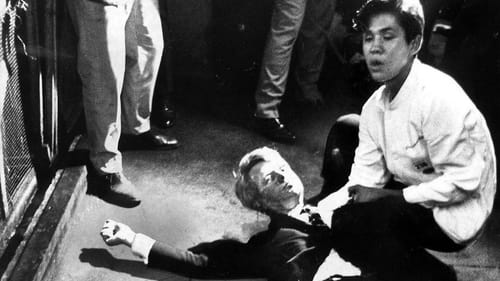
Self (archive footage)
As with the plot to frame Lee Harvey Oswald, the verdict on Robert Kennedy's murder was decided even before the case went to court. A lone, deranged assassin has always been the best way to explain away, and distract attention from, much more intricate conspiracies. This landmark documentary summarizes the best evidence that has ever emerged, contradicting the official story of Robert Kennedy's assassination. While sold by the corporate media as an open and shut case against "Palestinian radical" Sirhan Sirhan, this riveting film presents meticulously researched evidence, by several independent investigators, exposing outrageous procedure violations, blatant forgeries, and unexplained dismissals on the part of the authorities, revealing a world-class cover-up.

Self (archive footage)
On April 5, 1968, soul legend James Brown performed a concert in Boston that many say shielded that city from the kinds of devastating riots that ripped other cities apart after the assassination of Martin Luther King, Jr.

Self (archive footage)
A new investigative documentary exploring the controversies surrounding the assassination of Bobby Kennedy on June 5, 1968 as he looked set to challenge Nixon for the White House. Munir Sirhan tells how his brother Sirhan has never been able to remember the shooting. Sandra Serrano speaks for the first time in forty years about the girl in the polka-dot dress fleeing the scene, yelling "We shot him! We shot him!" And Dr. Herbert Spiegel of Columbia University describes how Sirhan was hypnotically programmed to kill Robert Kennedy.
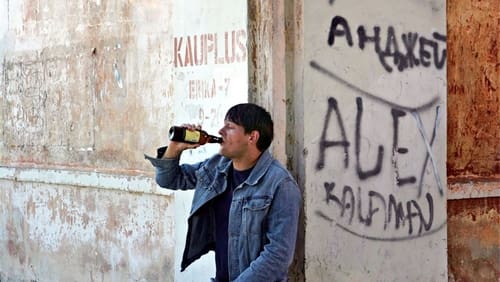
(archive footage) (uncredited)
The well-known but out-of-luck actor Jan Uuspõld sets out to hitchhike from Tallinn through Estonia to Tartu.

Himself (archive footage)
King: Man of Peace in a Time of War documents the work Martin Luther King did in attempting to bring peace to people during the turmoil of the Vietnam War and the Civil Rights Movement. The film includes interviews with contemporaries such as Jesse Jackson, and military experts like Colin Powell.

Self (archive footage)
A look at the role of the Buckeye State in the 2004 Presidential Election.
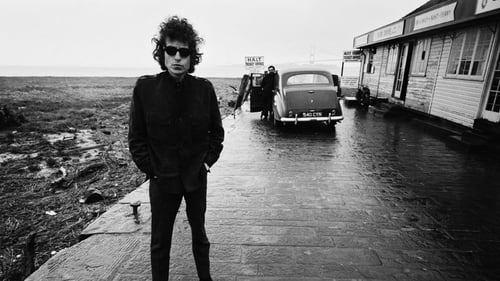
Self (archive footage)
Ele é um dos mais influentes, inspiradores e revolucionários músicos de nosso tempo. O diretor Martin Scorsese nos apresenta a extraordinária trajetória de Bob Dylan, desde suas raízes no Minnesota, suas primeiras aparições nas cafeterias do Greenwich Village, até sua tumultuada ascensão ao estrelato em 1966. Joan Baez, Allen Ginsberg, Pete Seeger, entre outros, compartilham suas idéias e sentimentos sobre o jovem cantor que transformaria a música folk tradicional dos Estados Unidos, para sempre. Com cenas inéditas, entrevistas exclusivas e apresentações raras, este é um retrato definitivo que os fãs do mundo inteiro esperavam há décadas: a história jamais contada de uma lenda viva.

Self (archive footage)
Documentary about the final five, turbulent years in the life of civil rights activist Martin Luther King. The story begins at the Lincoln Memorial in August 1963, when a 34-year-old preacher galvanized millions with his dream for an America free of racism and comes to a bloody end five years later on a motel balcony in Memphis. King has since become a mythic figure, an activist whose works and image are more hotly contested, negotiated and sold than almost anyone else's in American history. (Storyville)

Self (archive footage)
A partir da polêmica decisão da Suprema Corte de Justiça americana concluindo que uma corporação, aos olhos da lei, é uma "pessoa", são analisados os poderes das grandes corporações no mundo atual. A exploração da mão-de-obra barata no Terceiro Mundo e a devastação do meio ambiente são alguns dos fatos explorados, que entrevistam presidentes de corporações como a Nike, Shell e IBM, além de Noam Chomsky, Milton Friedman e Michael Moore.

Oscar nominated documentary short from 2002

Self (archive footage)
Tal como os filmes anteriores baseia-se em imagens de beleza inquestionável. De confusão calculada, de medos aleatórios e manipulados, enfim, do mundo criado pelo homem.

A Huey P. Newton Story is a 2001 film directed by Spike Lee. It is a filmed performance of Roger Guenveur Smith's one-man show of the same name. Smith sits in a chair on a stage and tells about the past, mostly dealing with Huey P. Newton's life and times.

Self (archive footage)
Fists of Freedom examines one of the 20th century’s most memorable moments — the dramatic “Black Power” demonstration of American sprinters Tommie Smith and John Carlos on the victory stand at the 1968 Summer games in Mexico City. Using rare footage, archival photos and interviews with key figures from the era, revisit a pivotal event in American history.

Self
A revealing portrait of the private life and inner struggles of Martin Luther King Junior, champion of non-violent protest and martyr of the Civil Rights Movement. The film tells the story of Dr. King’s childhood and formative years, his early triumphs for Civil Rights and his personal sacrifices, his wilderness years and his rise to international prominence.
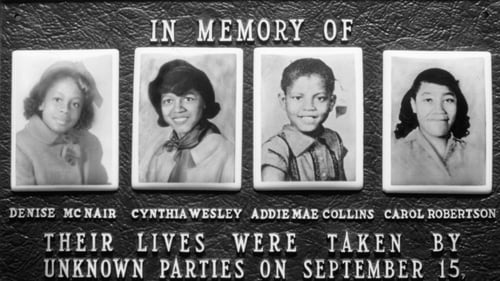
Self (archive footage) (uncredited)
Documentário que relembra um dos piores crimes raciais da história americana. Em pleno apogeu dos movimentos por direitos civis, uma bomba explode em uma igreja do Alabama matando quatro meninas negras.

Documentário frio sobre um tema fervente: os workshops sobre racismo desenvolvidos pela estadunidense Jane Elliott.

Self (archive footage)
Using government documents, archive footage and direct interviews with activists and former FBI/CIA officers, All Power to the People documents the history of race relations and the Civil Rights Movement in the United States during the 1960s and 70s. Covering the history of slavery, civil-rights activists, political assassinations and exploring the methods used to divide and destroy key figures of movements by government forces, the film then contrasts into Reagan-Era events, privacy threats from new technologies and the failure of the “War on Drugs”, forming a comprehensive view of the goals, aspirations and ultimate demise of the Civil Rights Movement…

Self (archive footage)
Documentary film focuses on the Civil Rights leader's many groundbreaking accomplishments. Footage covers Dr. King's war on poverty and his staunch opposition to the Vietnam War. Also included is his stirring "I Have a Dream" speech.

Self (archive footage) (uncredited)
Uma homenagem ao controverso ativista negro e líder da luta pela liberação negra. Ele chegou ao fundo do poço durante seu encarceramento nos anos 50, tornou-se um muçulmano negro e, mais tarde, líder da Nação do Islã. Seu assassinato em 1965 deixou um legado de autodeterminação e orgulho racial.

Self (archive footage)
DEATH SCENES II continues the exploration into the dark recesses of violence and rage that ended in such heinous crimes as the Manson Family's assault on society. You'll see the gruesome aftermath of mob reprisals, public executions and international terrorism. DEATH SCENES II uniquely ushers the brave and curious into a spellbinding trip through the reality that is our world today.
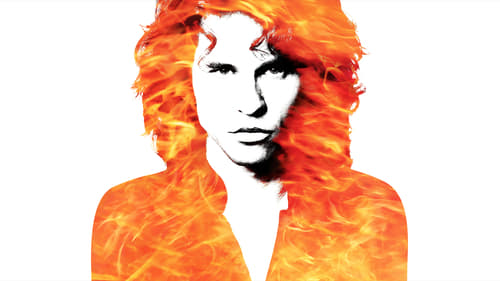
Self (archive footage) (uncredited)
Jim Morrison, a voz e a alma da banda The Doors, um homem que marcou várias gerações e que ainda hoje nos faz interrogar se algum dia alguém o conheceu realmente. Oliver Stone, realizador pródigo em filmar polêmicas americanas, realizou em 1991 um filme sobre a ascensão da banda, terminando o filme com a morte de Jim Morrison, cuja frase do epílogo deixa a certeza das causas em aberto (dizem que Jim morreu de uma parada cardíaca). É, em seus certos exageros, a biografia de Jim Morrison e da banda The Doors, uma das mais influentes dos anos 1960. Mostra sua passagem pelo conturbado mundo do rock'n'roll, onde as drogas e o sexo reinavam.

Himself (voice) (archive footage) (uncredited)
Atlanta, 1948; Uma rica judia de 72 anos (Jessica Tandy) joga acidentalmente seu Packard novo em folha no jardim premiado do seu vizinho. O filho (Dan Aykroyd) dela tenta convencê-la de que seria o ideal ela ter um motorista, mas ela resiste a esta idéia. Mesmo assim o filho contrata um afro-americano (Morgan Freeman) como motorista. Inicialmente ela recusa ser conduzida por este novo empregado, mas gradativamente ele quebra as barreiras sociais, culturais e raciais que existem entre eles, crescendo entre os dois uma amizade que atravessaria duas décadas. (e Livre - Estimado Livre)
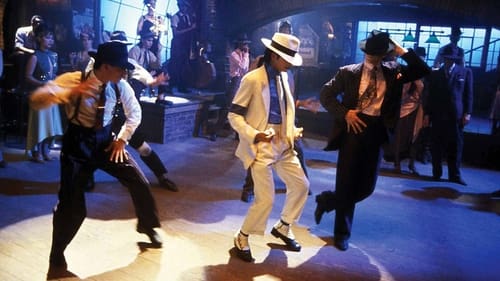
Himself (archive footage)
Mr. Big é um poderoso traficante de drogas que oferece um grande perigo às crianças. Para defendê-las surge Michael na pele de um herói extraterrestre com poderes mágicos.

Self
Personal comments from family, friends, and advisors fill this remarkable documentary honoring Dr. Martin Luther King, Jr. Coretta Scott King joins the Reverend Ralph Abernathy, Julian Bond, Jimmy Carter, the Reverend Jesse Jackson, Senator Edward Kennedy, John Lewis, Bishop Desmond Tutu, and Andrew Young, who recall Dr. King's career and trace his leadership in the civil rights movement. Includes portions of his "I Have a Dream" speech.

Self (Archival Footage)
Walter Williams critiques the war on poverty, schooling, and more in this public television documentary based on Walter Williams' book 'The State Against Blacks'.
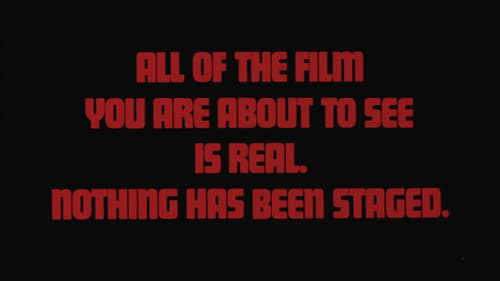
Self (archive footage)
A documentary of the decline of America. Featuring footage (most exclusive to this film) from race riots to serial killers and much-much more.
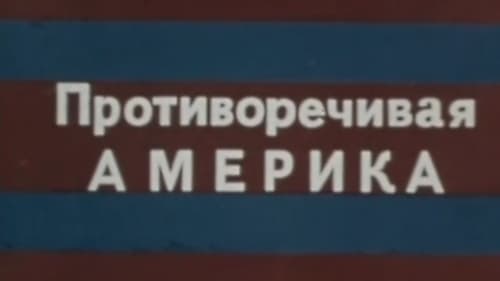
Self/Cameo (archive footage)
In the second film, the author tells about the struggle of blacks for the right to feel equal with all US citizens. Commentary of the mayor of Cairo, one of the cities in the American South, about the suppression of the rebels, about the most brutal methods of fighting African American protesters. Jesse Jackson's speech. Jesse Jackson's commentary on the Black Rights Organization. Comments by female residents of Jackson, the capital of Mississippi, on the degree of mental development of whites and blacks. A story about the Ku Klux Klan, about Robert Shelton - the head of the Ku Klux Klan. Speech by American singer and dramatic actor Paul Robson, his commentary. Shots of the Olympics, victories in the competition of black athletes. About reprisals against Negro organizations. The widow of the American writer Ernest Hemingway Mary and the American scientist Henry Winston speak out about support for African Americans and the fight against racism.

Self (archive footage)
A 1964-1973 Retrospective for homecoming POWs.

Self (archive footage)

Self (archive footage)
Constructed from a wealth of archival footage, the documentary follows Dr. Martin Luther King, Jr. from 1955 to 1968, in his rise from regional activist to world-renowned leader of the Civil Rights movement. Rare footage of King's speeches, protests, and arrests are interspersed with scenes of other high-profile supporters and opponents of the cause, punctuated by heartfelt testimonials by some of Hollywood's biggest stars.

Himself
This is a montage of different images from the JFK, Martin Luther King and Bobby Kennedy triumphs and assassinations, all three events being observed by Lyndon Johnson as the dark figure who is plotting the anti-black rights movement.

Himself
Report on the nature of "Black Power," and how it can be effectively used. Interviews with Martin Luther King, SNCC head Stokely Carmichael, Floyd McKissick of CORE, and Charles Evers. Reporter is Sander Vanocur.

Himself
I Am Curious (Yellow), foi um marco cinematográfico que ajudou a definir a emergente mudança no cinema sueco da década de 60, realizado por Vilgot Sjöman. Como a New Wave francesa, o filme usa jump cuts e a sua história não está estruturado de uma forma convencional tipo Hollywood. Além disso, contém elementos documentais, por exemplo, ele apresenta uma breve aparição do Dr. Martin Luther King Jr, que é entrevistado por Sjöman sobre a sua opinião sobre a desobediência civil. A obra inclui inúmeras cenas de nudez e encenação sexual. Numa cena particularmente controversa, Lena (Lena Nyman), beija seu amante no pênis. Em 1969, o filme foi proibido na Commonwealth de Massachusetts, por ser considerado pornográfico. No entanto, após uma longa batalha judicial, o filme acabou por ser considerado aceitável, e tornou-se num êxito de bilheteira.

The struggle for civil rights has been one of the most important issues of American life for the last fifty years. In August of 1963, groups from all over the country journeyed to Washington D.C. for a massive demonstration, and this film is a fascinating document of this event. Celebrated filmmaker Haskell Wexler ("Medium Cool") traveled with the San Francisco delegation, photographing and conversing candidly with the participants. He has succeeded admirably in capturing the significance and drama of this historic trip.
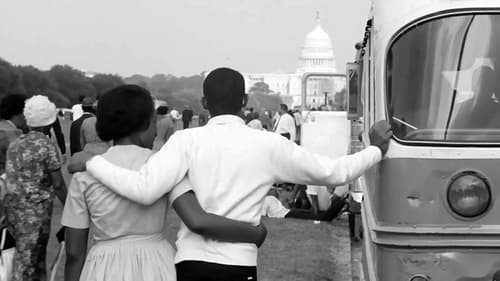
Self
The March, also known as The March to Washington, is a 1964 documentary film by James Blue about the 1963 civil rights March on Washington. It was made for the Motion Picture Service unit of the United States Information Agency for use outside the United States – the 1948 Smith-Mundt Act prevented USIA films from being shown domestically without a special act of Congress. In 1990 Congress authorized these films to be shown in the U.S. twelve years after their initial release. In 2008, the film was selected for preservation in the United States National Film Registry by the Library of Congress as being "culturally, historically, or aesthetically significant". (Wikipedia)

Himself
This film explores freedom of speech in the United States of America

himself
The historic interview that stopped JFK in his tracks...
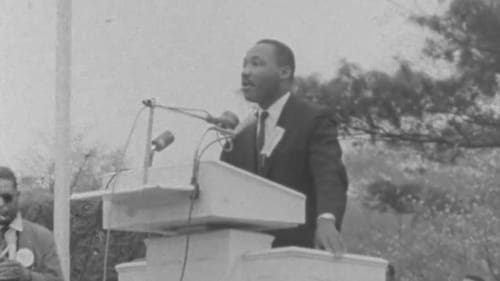
Self
Integration Report 1, Madeline Anderson's trailblazing debut, was the first known documentary by an African American female director. With tenacity, empathy and skill, Anderson assembles a vital record of desegregation efforts around the country in 1959 and 1960, featuring footage by documentary legends Albert Maysles and Richard Leacock and early Black cameraman Robert Puello, singing by Maya Angelou, and narration by playwright Loften Mitchell. Anderson fleetly moves from sit-ins in Montgomery, Alabama to a speech by Martin Luther King Jr. in Washington, D.C. to a protest of the unprosecuted death in police custody of an unarmed Black man in Brooklyn, capturing the incredible reach and scope of the civil rights movement, and working with this diverse of footage, as she would later say, “like an artist with a palette using different colors.”
